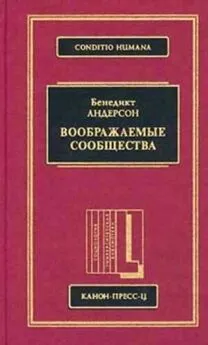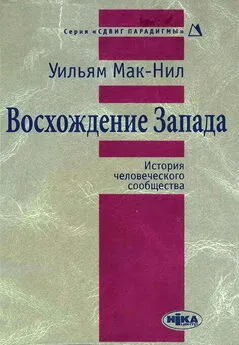Елена Петровская - Безымянные сообщества
- Название:Безымянные сообщества
- Автор:
- Жанр:
- Издательство:Фаланстер
- Год:2012
- Город:Москва
- ISBN:978-5-9903732-1-1
- Рейтинг:
- Избранное:Добавить в избранное
-
Отзывы:
-
Ваша оценка:
Елена Петровская - Безымянные сообщества краткое содержание
Книга посвящена практически не исследовавшейся в России проблеме сообщества, понимаемого не как институциональное образование, но как условие прочтения самых разных текстов современной культуры. В сферу рассмотрения включаются такие сюжеты, как художественный авангард начала XX века, утопическое в массовой культуре, событие и документ (в том числе Событие с заглавной буквы), образ в противоположность изображению, «множество» и размышления о политических изгоях. Сообщество, понимаемое как форма коллективной аффективности или как «другое» существующего общества, оставляет след в литературных, кинематографических и фотографических произведениях.
Книга публикуется в авторской редакции.
Безымянные сообщества - читать онлайн бесплатно полную версию (весь текст целиком)
Интервал:
Закладка:
The same kind of exploration seems to have been carried out by my compatriot Boris Mikhailov. However, Mikhailov not so much plays on the cinematic-historical as he traces lines of continuity for Soviet experience or the experience of the Soviet, to be more accurate. I would take the liberty of summing up his work as follows. Experience never allows for a plenitude of meaning. While it is taking place, it lacks in meaning, it is meaningless, in fact. At best we can hope to focus on what Raymond Williams has so aptly called «structures of feeling», a form of sensibility that is still in the making. Needless to say that structures of feeling are short-lived. They may roughly indicate a decade or a generation. Also, they are quite diffuse. But what they do point out is a collectivity having its emotional , i.e., fantastic, phantasmatic stakes in the passing moment. This is exactly what is lost in the master narratives of history. Barthes, as we remember, was scandalized by the irretrievable loss of the «unknown» individual as well as of his or her emotion. His great book on photography is an affirmation of filial love. But no less can one be scandalized and saddened by the loss of whole collectives, whose only «objective» quality would consist in their shared affective being.
To return to Boris Mikhailov and his lifelong endeavor. What he has been trying to do is to translate this blank or omission — the emotional lives of the generations that are closest to us, of our fathers and grandfathers. What do we know about them? What will we store in our memories, especially if historical memory in my country was denied at one point as such? How can we hope to preserve the truth of «their» moment if we know very little about it, almost nothing at all? Again, I am not referring to a knowledge of facts and/or dates. I am talking of the experience of the Soviet with a special emphasis on both of these words. And if I have already briefly spoken of experience, let me now concentrate on the Soviet. The Soviet that Mikhailov is showing us — and here lies the greatest paradox of his photography — is in fact the doubling of representation and its visible signs (which are also signs of the Soviet: ethnographic details, culturally coded landscapes, etc.) with the invisible, an act which allows for this very reading to take place. Only the punctum , to use Barthes’ term, or the implied photographic reference, has to do with an a priori existing collective. What is posited here, in other words, is a spectator who does not stand in some sort of contemplative isolation (such is the paradigm of classical art). On the contrary, in order to «see», you must already be part of a dreaming collective. For these pictures, very much like Sherman’s series, become truly visible through a shared affectivity that keeps resurfacing in them.
I am not talking of empathy. Contemporary works of art are not empathetic. Their stakes are much higher. They allow you to enter a space of commonality, which is the very condition of seeing and likewise recognition. And they do so in various ways. To return one last time to Boris Mikhailov. If the continuity of experience ever takes place (something I mentioned above), it is by setting against each other, i.e., juxtaposing or putting into play, two types of experience. The Soviet reaches plenitude in the post-Soviet, and, presumably, the opposite is true. It is by making both form a constellation, in the Benjaminian sense, that we can hope to uncover the meaning of this historical juncture. At a moment when our «own» past seems to be completely disowned — for what are we, bearers of a post-Soviet identity — can we hope to come closer to that other «omission» which is the life of our fathers.
The anonymity of the Soviet. In order for it to be discovered as such, in its non-alienating aspect, it has to be both hidden and shown. What is this «other» of the Soviet that transforms all visible signs crowded in a photograph into a historically meaningful image? I would tentatively call this «other» forces of the private. It is not just private life rendered visible in a captured moment, be it swimming, celebrating, picking mushrooms and the like. It is that which never enters visibility, but which seems to blast wide open, to decode all public (but also private) spaces in unprecedented ways. The thrust of life itself, if you will, or that primary distinction — forces of the private versus substance and representation — that accounts for visibility. Such forces work their way through and across existing social forms and definitions. They contextualize our vision of the Soviet in a very special way. It is by imagining or rather fantasizing their existence, something prompted by the changing nature of the Photo, that we succeed in recognizing and acknowledging «that» moment today.
And we do so by switching on to «them», by creating some sort of a circuit. «We» and «they» are interchangeable. Or rather «we» and «they» form the only possible continuity of history, a history yet to be written. Which is not to say that this history will be written. It is unwritten precisely in as much as it avoids closure by speaking for and in the name of an indeterminate collective — the anonymous community. Yet, this possibility is itself historical. It opens up in a time of so many devastating ends and endings and is thus a promise. Something is still promised to us.
In conclusion let me briefly and, therefore, somewhat irresponsibly sketch out other instances of a thinking of anonymity, at least of a thinking that contains this potential. In a book which by the standards of our time is old, but not outdated — I am referring to the Différend published in 1983 and to a subsequent study L’enthousiasme (1986) — Jean- François Lyotard examines Kant’s «critique» of history. He is specifically interested in the strange status of what Kant calls Begebenheit and what is translated as «sign of history». Kant’s task, it should be explained, is to answer the question (against the Faculty of Law, and there is indeed an ongoing conflict) whether it can be affirmed that the human race is constantly progressing toward the better. The requested demonstration is complicated by the fact that neither progress, nor the human race, being objects of Ideas, can be presented directly, which is only aggravated by the phrase itself having an explicit bearing on the future. Moving away from any intuitive given ( Gegebene ), Kant comes up with his most intriguing concept of Begebenheit , an event or «act of delivering itself which would also be an act of deliverance, a deal [ une donne ]» (the Crakow manuscript calls it Ereignis ). This event would merely indicate and not prove that humanity is capable of being both cause and author of its progress. Moreover, the Begebenheit must point to a cause such that the occurrence of its effects remains undetermined with respect to time. Being on the side of freedom, it may therefore intervene at any time in the succession of events.
I will hasten at this point just to show where and how exactly Kant comes up with his answer to the problem. He does find an index, a Begebenheit of his time, which for him, predictably enough, is the French Revolution. However, he makes a necessary and exciting detour. For the Begebenheit , strictly speaking, is neither momentous deed nor occurrence, but «the mode of thinking ( Denksungsart ) of the spectators which betrays itself publicly in [the] game of great upheavals…». This «mode of thinking» is simultaneously universal (albeit not lacking in partiality) and moral (at least in its predisposition), in a word, progress itself. As for the French Revolution, whose outcome remains unknown, it «nonetheless finds in the hearts of all spectators <���…> a wishful participation that borders closely on enthusiasm, the very expression of which is fraught with danger»; this sympathy, however, springs from nothing other than the moral predisposition of the human race.
Lyotard, a profound scholar of Kant and the sublime, immediately stops to analyze this enthusiasm which is expressed by so many «disinterested» national spectators. For him it is a «modality of the feeling of the sublime», in fact extreme and paradoxical: an abstract presentation that presents what is beyond the presentable («presentation of the Infinite»). Bordering on dementia, itself an Affekt (an extremely painful joy), enthusiasm is condemnable as pathological from the point of view of ethics, yet aesthetically it is sublime, because, says Kant, «it is a tension of forces produced by Ideas, which give an impulse to the mind that operates far more powerfully and lastingly than the impulse arising from sensible representations».
Now, the Begebenheit , or sign of history, continues Lyotard, can be understandably found on the side of audiences watching great historical upheavals: first, revolutions themselves are like spectacles of nature, they are formless and thus account for an experience of the sublime; second, the spectators, as opposed to direct participants, are not empirically implicated and therefore, so to say, corrupt. However, being in the «theater hall» is an unprecedented privilege. For the feeling of the sublime experienced by the spectators spreads out toward «all the national stages», in other words, is potentially universal. This universality, as Lyotard goes on to show, is of a very special nature, for, quite unlike cognitive phrases, the feeling of the sublime « judges without a rule » (italics added). Its a priori is not a rule universally recognized, but one that awaits its own universality. Universality in abeyance, in suspense ( universalité en souffrance ), a promise of universality, which necessarily brings us to sensus communis . Characteristic of the aesthetic judgment, this common or communal sense is an «indeterminate norm» in that it does not guarantee that «everyone will agree to my judgment…». But, as a faculty of judgment, it does take account of the «mode of representation of all other men». To finish the argument, enthusiasm as a probative Begebenheit (and also a pure aesthetic feeling) calls upon a consensus which ends up being nothing other than «a sentimental anticipation of the republic» (in the form of a de jure undetermined sensus ).
Here I will stop. I will only point to the one important consequence that follows. The universality invoked by the sublime (as well as by the beautiful), concludes Lyotard, is merely an Idea of community, for which no proof, that is, no direct presentation, exists or will ever be found. What there does exist, however, is a bond, a bond of «communicability» between two parties to a conflicting phrase, and this bond retains «the status of a feeling». Communicability, one might say, is a way of «logging onto» the phrase of taste and thus of informing it with varying degrees of heterogeneity. For Lyotard sensus communis (in aesthetics) signifies an « appeal to community » (italics added) which is carried out a priori and judged without any rule of direct presentation. What is a priori shared is «a feeling».
Of course, it is no discovery that Kant opens up a space for a thinking of community. But thinking Kant according to this exigency is quite another matter. I would claim that this very «retrospection» is a sign of change — if not a Begebenheit in the proper sense, then at least something that emerges from within contemporaneity and that tends to be associated with the present-day «condition». There is much to discuss inside as well as beyond the Kantian framework. Let us simply bear in mind the following. Community is never there, that is, it is not objectifiable. Not only does it remain unpresentable, but it cannot be, properly speaking, achieved — even the French Revolution is meaningful to the extent to which it is anticipatory of the republic. (Community, let me note in passing, is on the side of that eventuality which is dispersed in time: Kant’s Begebenheit is what he explicitly calls « signum rememorativum, demonstrativum, prognosticon », a sign recalling, showing, and anticipating all at once.) Yet, there must be something that allows for a discourse of the community, even though community itself cannot but fail. (And, one must add, it is always failed — always on the edge of language, always indicating an «other» space, always, in a word, anonymous.) We must be able to deliver its message and its promise. For Kant, as Lyotard convincingly shows, the problem is resolved by the affective paradox of the sublime. A feeling is shared about a formless something that alludes to the beyond of experience, yet the feeling itself constitutes an «as-if presentation» (be it of the Idea of civil society or that of morality), and it emerges right there where the Idea cannot be presented, i.e., in experience. (Of course, Kant’s understanding of experience is significantly different from what was said about it earlier above. Rather, the Begebenheit itself would be synonymous to that experience.)
Читать дальшеИнтервал:
Закладка:










